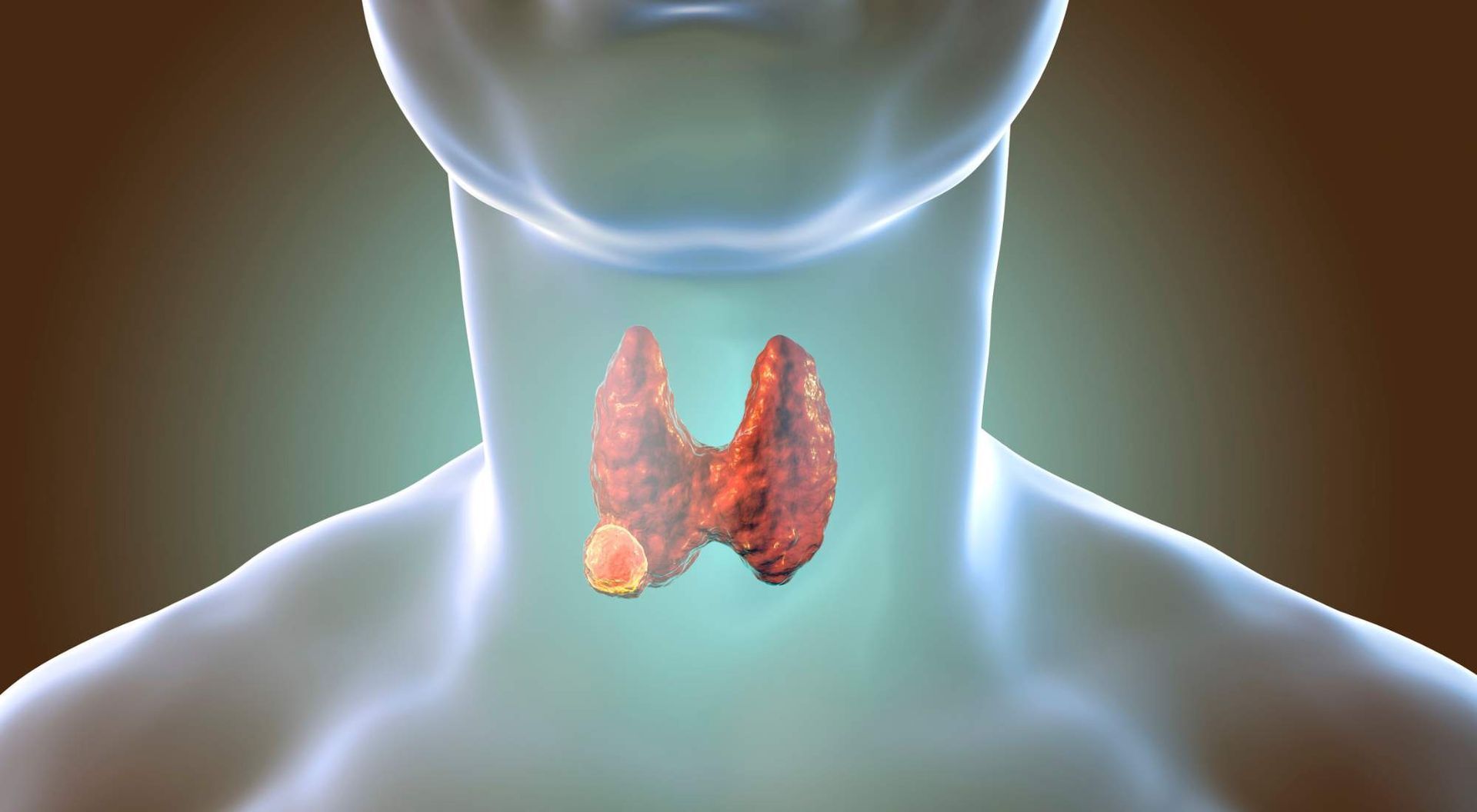How Various Factors Can Affect the Length of a Hashimoto’s Flare-Up
"The content below is not intended to be a substitute for professional medical advice, diagnosis, or treatment. Always seek the advice of your physician or other qualified health provider with any questions you may have regarding a medical condition."
After being diagnosed with Hashimoto’s, you listened to your doctor and worked hard to make dietary and lifestyle changes that eventually, with medication, reduced your symptoms. You started feeling like yourself again.
But now, you’re experiencing some of those familiar symptoms again:
- Fatigue
- Weight gain
- Hair loss
- Constipation
Wait a minute! You thought you had this under control, so why are you dealing with these things again?
Could it be a Hashimoto’s flare-up?
To answer that question, this guide will provide information on how long Hashimoto’s flare-ups last, what triggers them, how to manage them, and how a holistic nutritional approach can help.
Table of Contents
How Long Do Hashimoto’s Flare-Ups Last?
Hashimoto’s flare-ups can be short-term, lasting several weeks, or long-term, lasting months or, in extreme cases, even years.
How long a flare-up lasts is dependent on different factors, including:
- The cause of the flare-up
- Genetics
- Prior management of the condition
- Underlying conditions

3 Factors That Can Affect How Long a Hashimoto’s Flare-Up Will Last
The length of a Hashimoto’s flare-up can vary, depending on different facets of the disease or individual. Below, we'll take a look at three of the most common variables that affect the duration of a flare-up:
- The trigger of the flare-up
- Previous Hashimoto’s management
- Unique individual factors
#1: Triggering Event
Flare-ups can materialize for a variety of reasons, including both physical and emotional triggers.
Our bodies are made up of many complex systems. Changes in those systems can adversely affect the way those systems are designed to function. Additionally, mental and emotional stressors — both positive and negative — can cause a breakdown in immune function.
A Hashimoto’s flare-up results in a recurrence of symptoms because the immune system is ramping up its attack on the thyroid gland due to some sort of trigger.
Once you identify the trigger and do what’s necessary to get the body back in a state of equilibrium, the flare-up should subside. How long a flare-up lasts depends often on how long it takes to “reset” your immune system by relieving the cause of the triggers.
Physical Triggers
An eruption of Hashimoto’s symptoms can be caused by many different physical triggers, like:
- Infections: When you’re dealing with an infection, the immune system kicks in, which may cause inflammation as your body tries to fight off the infection. This excess inflammation can cause a flare-up. Depending on the type of infection, it can take months for a flare-up to subside.
- Insufficient sleep: Sleep is one of the most restorative activities for our bodies. When we don’t get enough sleep, the body is stressed, and it can cause HPA-axis disruption, which can make autoimmune thyroid disease worse. Practicing good sleep habits to get quality sleep can help reduce flare-ups and their longevity.
- Environmental chemicals/toxins: Amazingly, toxins and your gut health go together. When your body takes in environmental pollutants, it can change your gut microbiota, making it easier for those toxins to enter your body. Just like inadequate sleep, toxins can cause an HPA-axis disruption, which affects the amount of thyroid hormone that gets released.
- Dietary changes: An increase in inflammatory foods in your diet can trigger a flare-up. Some common inflammatory food triggers include soy, gluten, dairy, and processed foods. Sticking to a clean, anti-inflammatory diet can help get flare-ups under control.
- Nutrient deficiencies: Some specific nutrients and minerals have a role to play in thyroid health — like selenium, iodine, zinc, vitamin B, and vitamin D. When you are deficient in these minerals and vitamins, flare-ups are possible. Restoring adequate amounts of these nutrients to your body through diet or supplementation can help speed up recovery from a flare-up.
HealthierU is here to help! Dr. Sergi’s goal is to help you manage Hashimoto's symptoms and reduce flare-ups with a holistic, nutritional approach. Request a free nutrition consultation today to get started on your journey to a healthier you!
Mental or Emotional Triggers
Stress and emotional drain can leave us completely exhausted and depleted. We’ve all experienced it at some point or another and have also likely experienced the physical consequences that can accompany these stressors. One of those physical repercussions may be a flare-up of Hashimoto’s symptoms.
Some common mental and emotional triggers include:
- Stress
- Depression
- Lifestyle demands
- Work pressures
- Significant life changes (like a move, job change, marriage, or divorce)
When under stress because of one of these triggers, the adrenal glands produce the “stress hormone,” cortisol. When your cortisol levels remain high due to chronic stress, your thyroid function is compromised, leading to the possibility of a flare-up.
Finding
ways to minimize and manage stress is crucial for optimal thyroid function and calming the body after a flare-up.
#2: How Well the Condition Was Managed Prior To the Flare-Up
Even when well managed, Hashimoto’s flare-ups can still occur. When Hashimoto’s isn’t controlled, flare-ups are more likely. That’s why managing the disease should be a priority.
Nutrition and healthy lifestyle choices can be key to managing symptoms and flare-ups.
Everyone goes off the rails from time to time, but being committed to a balanced nutrition plan and prioritizing a healthy lifestyle are some of the best ways to help keep Hashimoto’s eruptions in check.
At HealthierU, we help you do both.
After we help you get to the underlying cause of your symptoms, we design a customized plan that includes nutritional support, supplementation, and lifestyle guidance to alleviate your symptoms.
Click below to request your free nutrition consultation.
Flare-Ups While Taking Thyroid Medication
Thyroid hormone levels can go up and down for a variety of reasons, like:
- Pregnancy
- Medication interactions
- Age
- The progression of the disease
- Weight changes
- Inadequate medication dosage
A Hashimoto’s flare-up may be due to not having the right medication dosage. That’s why it’s important to have thyroid hormone levels regularly checked with
blood tests. Doctors generally order tests to determine TSH levels, but they may also order tests for T4, T3, and Free T3 levels.
#3: Factors Unique to Each Individual
Even though there isn’t one gene that determines whether you will have thyroid disease or not, genetics may play a role in the likelihood of you having the disease, and thus, experiencing flare-ups.
According to research, genetics and family history do contribute to one's chances of developing thyroid disease. Biological sex and age may also be determiners, as well as having another autoimmune disease, like:
- Lupus
- Addison’s disease
- Celiac disease
- Rheumatoid arthritis
- Sjögren’s syndrome
- And more

Managing a Hashimoto’s Flare-Up To Reduce the Amount of Time You’re Affected
Hashimoto’s flare-ups may come and go, but they don’t usually go away overnight.
The key to managing a flare-up is to know your triggers.
Once you’ve identified your triggers, you can double down on what you know works for you in your own personal Hashimoto’s management — because those efforts will also help resolve and manage future flare-ups.
For example, let’s say you go on vacation and aren’t as careful to follow your anti-inflammatory diet while you’re away. You also are intent on relaxing, so you spend the whole vacation lying on the beach and totally get out of your regular exercise routine. You get back home and instantly experience symptoms of a flare-up.
You know immediately that your inactivity and bad food choices are the culprit. What do you do?
You get back in the groove and make a plan to return to the anti-inflammatory diet that has worked in the past to help manage your symptoms. You also get back in the gym and commit to your regular workout. With consistency, you may see your symptoms subside in a few weeks.
Efforts You Can Make To Put Hashimoto’s Into Remission and Avoid Flare-Ups
No matter what triggers your Hashimoto’s flare-up, there’s a way to calm things down and help you get your symptoms under control and start feeling “normal” again. Whether it’s dealing with stress, getting the right minerals in your body, or getting better sleep, we’ll look at some steps you can take during and after a flare-up to get you back on track.
Stick to an Anti-Inflammatory Diet
Though there isn’t one specific diet that will work for every person with Hashimoto’s, choosing an anti-inflammatory is a good place to start.
Dr. Izabella Wentz, a doctor of pharmacology who’s done extensive research on Hashimoto’s thyroid disease, suggests the following diets:
- Gluten-, dairy-, and soy-free diet
- Paleo diet
- Autoimmune Paleo diet
In addition to adhering to one of these diets, she believes the following are important to help minimize flare-ups and recover from them:
- Balancing blood sugar and limiting the intake of carbohydrates
- Limiting fish high in mercury levels
- Limiting foods high in iodine
- Increasing your intake of protein and good fats
- Adding nutrient-dense foods that can benefit the thyroid
- Removing personally reactive foods
Gut health also plays a critical role in managing Hashimoto’s flare-ups. A healthy gut can help reduce inflammation. Foods like Greek yogurt, kefir, kimchi, and kombucha are great probiotic foods for gut health.
Avoid highly processed foods and refined sugars and instead consume foods high in anti-inflammatory qualities and nutrients that support thyroid function, including:
- Selenium
- Iron
- Zinc
- Vitamin D
- Avocados
- Berries
- Cherries
- Turmeric
- Fatty fish
An elimination diet may also help you identify the foods that may be directly causing your Hashimoto’s flare-ups.
Practice Stress Management
Though you may not be able to control all the incidences in your life that cause stress, you can help fend off flare-ups and recover from them more quickly by putting some stress management tools into place.
Some stress-reducing and cortisol-lowering activities to practice may include:
- Exercising regularly
- Seeking counsel
- Meditating
- Asking for help (and receiving it!)
- Mindfulness breathing techniques
It's also important to take inventory and note the things that cause you to get stressed and eliminate or reduce those stressors when possible.
Find the Right Balance of Physical Activity
Exercising too much or too little can lead to Hashimoto’s flare-ups. That’s why balance is key.
It’s always a good idea to start out slowly by doing some lighter exercise activities, like:
- Walking
- Stretching
- Yoga
Building muscle mass through resistance training is also an excellent way to help recover from flare-ups. Resistance training is one way to help decrease inflammation, which may help to return to your healthy self after a flare-up or help keep them from recurring.
If starting a strength training routine is intimidating, consider joining a gym or hiring a personal trainer to help you get started. You can even do weight resistance training from the comfort of your own home.
When it comes to exercise, the key to sticking to it is finding something you enjoy doing. Experiment with some different exercise routines and activities to find the ones you enjoy the most and find a way to fit them into your regular weekly routine.

Make Quality Sleep a Priority
Quality, restful sleep is essential for overall health, including thyroid health. Aim to get around eight hours of sleep a night and practice some of these tips to make those eight hours of sleep as optimal as possible:
- Create a regular sleep schedule.
- Practice relaxation techniques.
- Avoid screens before bedtime.
- Reduce caffeine later in the day.
- Limit alcohol consumption.
- Sleep in a cool environment.
- Rise with the sun.
- Use “sleep” supplements, like magnesium and melatonin.
Add Supplements To Your Diet
Many people who struggle with thyroid health are deficient in vitamins and minerals, like vitamin D and selenium. If you aren’t able to receive the recommended amounts of essential vitamins and minerals from your diet, supplementation is a great way to make up the deficit.
Consider taking supplements like:
- Selenium
- Vitamin D
- Vitamin C
- Vitamin E
- Zinc
- Magnesium
- Tyrosine
- N-acetyl cysteine
Plants and herbs can also be helpful — like turmeric, licorice, and aloe vera — but those that heavily stimulate the immune system should be avoided — like echinacea and astragalus.
Iron may be supplemented, but it’s only a good idea if your iron is low. Avoiding iodine is also recommended since it can have negative effects on Hashimoto’s if your iodine levels are already high.
Find Ways To Manage Your Hashimoto’s Flare-Ups Naturally With HealthierU
Managing diet, lifestyle choices, stress, and supplementation are challenging, and without the proper knowledge, it can also seem intimidating. The good news is that you don’t have to figure it out all on your own.
As a chiropractor and specialist in women’s health, Dr. Donna Sergi has the experience and education to help women identify the cause behind their Hashimoto's symptoms, find relief, and manage their condition without traditional medication.
With a commitment to holistic and nutritional healing, Dr. Sergi works with each client to design a customized plan to address their condition and the symptoms that they experience. Her plan includes nutritional guidance, lifestyle advice, and supplementation direction, taking away the challenges that come when you’re overwhelmed with a Hashimoto’s flare-up.
Start feeling better today by booking a consultation with Dr. Sergi.
HealthierU
Natural Nutritionist Brooklyn
126 Avenue U
Brooklyn, NY, 11223
(718) 375-4355
Office Hours
- Monday
- Closed
- Tue, Fri
- -
- Wednesday
- - -
- Thursday
- -
- Sat - Sun
- Closed



